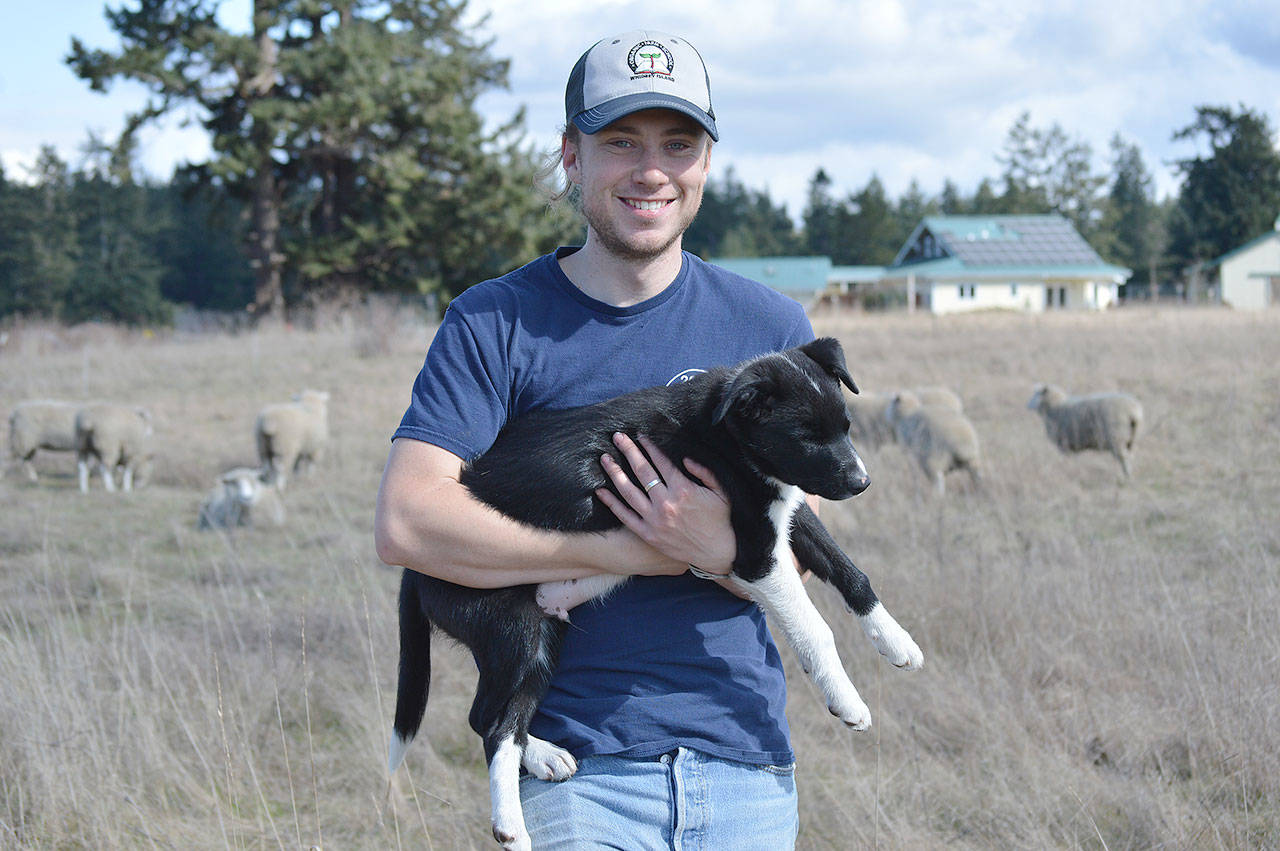News that the CEO of Pacific Rim Institute wanted to partner with young farmers came at a serendipitous time for Elijah Iles, 23.
The Freeland resident had just started Green Isle Farms and wanted to raise sheep, but he didn’t have any land or animals yet.
“It worked out great for me, this is a great lease,” Iles said. “It’s a lot of land in Coupeville— the best agricultural spot on the island.”
Iles recently entered an agreement with the Pacific Rim Institute to use around 40 acres of its land at a time to graze his sheep. His 50 pregnant ewes arrived Friday evening and immediately looked like they belonged there, according to Robert Pelant, CEO of PRI.
The sheep’s rotational grazing not only looks appealing against the landscape but will also serve an important purpose.
“We should be able to significantly reduce, and in some cases eliminate, the need for herbicides,” Pelant said.
The shallow tilling and planting of cover crops that Iles will perform to ensure his herd has enough food will also reduce the amount of invasive plants growing in the area and help in the institute’s restoration efforts, Pelant said.
The beneficial nature of the sheep grazing operation is part of what drew Iles to the industry. He spent some time working at a large sheep farm in Oregon and found an interest in that particular sector of agriculture.
“I really like the relationship between the sheep, grass and the land,” he said.
He admitted he will be a little stressed come April, when the ewes will start having babies, but he’s mostly excited.
By October, he hopes to start selling the lamb meat to local restaurants.
The sheep’s grazing behavior mimics the prairie conditions from when wild elk and deer roamed the island, Pelant said, and many native plants adapted to grow in those conditions.
Pelant said he and other staff at the institute plan to do more research on permanently incorporating rotational grazing and the possibility of reintroducing native plants into the pasture areas. Both Pelant and Iles said the arrangement is mutually beneficial.
“It’s really good for the young shepherd,” said Pelant.
“It’s good for the land and it’s also good for PRI and our mission.”



